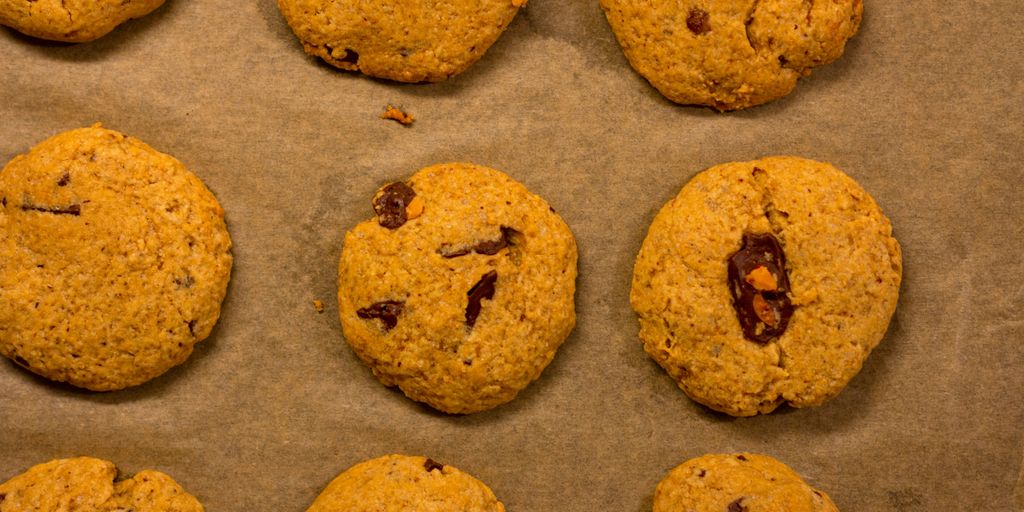Macrobiotic diets are based on traditional Japanese eating habits and are designed to promote overall health and well-being. They emphasize whole grains, beans, vegetables, and sea vegetables, with smaller amounts of fish, nuts, and seeds. Proponents of macrobiotic diets claim that they can help prevent and treat various chronic diseases, including cancer, heart disease, and diabetes. This article will explore the science behind macrobiotic diets, the potential health benefits and risks, and answer some more queries about this sustainable food trend.
What is a Macrobiotic Diet?
A macrobiotic diet is a plant-based, low-fat, and high-fiber diet that emphasizes whole, unrefined foods and excludes processed foods, animal products, and some vegetables and fruits.
The diet is primarily composed of grains, such as brown rice, barley, and millet, and beans, such as lentils, chickpeas, and black beans. Vegetables, particularly dark leafy greens, are also a central component of the diet.

Sea vegetables, such as nori and wakame, are also a common ingredient in macrobiotic meals. The diet generally restricts the consumption of meat, dairy, sugar, caffeine, and alcohol.
Proponents of macrobiotic diets claim that they promote health and longevity by balancing the body’s yin and yang energies. The goal of the diet is to achieve a balance of yin and yang energies, which are believed to represent the feminine and masculine energies in the body, respectively.
Foods are categorized as either yin or yang, and the diet aims to balance these energies through the consumption of different types of foods.
Why is it more sustainable than Western Diets?
A macrobiotic diet can be more sustainable than a typical Western diet for several reasons.
Firstly, the diet emphasizes whole, unrefined foods, which are often less processed and require less energy to produce. Additionally, the focus on plant-based foods can reduce the carbon footprint associated with meat production and transportation.
Secondly, the macrobiotic diet places a strong emphasis on local and seasonal foods. By eating foods that are in season and grown locally, the diet can reduce the environmental impact of transportation and support local farmers and food producers.
Finally, the macrobiotic diet often incorporates a variety of plant-based protein sources, such as beans and legumes, which are generally less resource-intensive to produce than animal-based protein sources.
As consumers become more aware of the impact of their food choices on the environment, there is a growing interest in sustainable diets, including the macrobiotic diet. In recent years, there has been a resurgence of interest in macrobiotic diets, particularly in the United States and Europe.
Scientific Evidence About the Benefits of a Macrobiotic Diet
While macrobiotic diets have been used for centuries in Japan and other parts of Asia, there is limited scientific research on the potential health benefits of this diet. However, some studies suggest that a macrobiotic diet may have health benefits.

A study published in the Journal of Nutritional Science and Vitaminology, found that a macrobiotic diet was associated with improved glycemic control in patients with type 2 diabetes. The study looked at a group of 17 patients with type 2 diabetes who followed a macrobiotic diet for 21 days and found that their fasting blood glucose levels and HbA1c levels decreased significantly.
Other potential health benefits of macrobiotic diets are as follows-
- Weight Loss: Macrobiotic diets are low in fat and high in fiber, which can help promote weight loss. A 2015 study found that a macrobiotic diet was associated with significant weight loss in overweight and obese adults.
- Lower Risk of Chronic Diseases: Macrobiotic diets are rich in whole, unrefined foods that are high in nutrients and antioxidants. These foods can help reduce the risk of chronic diseases, such as heart disease, cancer, and diabetes. A 2018 study published in the Journal of Nutrition and Metabolism found that a macrobiotic diet was associated with a lower risk of colorectal cancer in Japanese adults.
- Improved Gut Health: A macrobiotic diet is rich in fiber and prebiotics, which can help improve gut health and promote the growth of beneficial gut bacteria. A 2014 study p found that a macrobiotic diet was associated with increased levels of beneficial gut bacteria and a reduction in harmful gut bacteria.
- Reduced Inflammation: A macrobiotic diet is rich in anti-inflammatory foods, such as whole grains, vegetables, and sea vegetables. These foods can help reduce inflammation in the body, which is a key driver of many chronic diseases.
Are There Any Potential Risks?
While macrobiotic diets can have many health benefits, there are also potential risks to consider.
- Nutrient Deficiencies: Macrobiotic diets restrict the consumption of certain foods, such as meat, dairy, and some fruits and vegetables. This can lead to nutrient deficiencies, particularly in protein, vitamin B12, and iron. A 2017 study published in the Journal of the Academy of Nutrition and Dietetics found that macrobiotic diets were associated with lower intakes of protein, vitamin B12, and iron.
- Increased Risk of Malnutrition: Macrobiotic diets may be low in calories, which can lead to malnutrition if not properly planned. This is particularly a concern for individuals who are already underweight or have a history of eating disorders.
- Difficulty Meeting Nutrient Needs: Macrobiotic diets can be challenging to follow and may require careful planning to ensure that all nutrient needs are met. This can be particularly challenging for individuals with certain medical conditions, such as diabetes or kidney disease.
Is a macrobiotic diet vegetarian or vegan?
A macrobiotic diet is primarily vegetarian, but some versions may include small amounts of fish or other animal products.
Can macrobiotic diets cure cancer?
While some proponents of macrobiotic diets claim that they can cure cancer, there is no scientific evidence to support this claim
Is it safe for children?
A macrobiotic diet can be safe for children, but it may be challenging to meet their nutrient needs. It is important to work with a healthcare professional or registered dietitian to ensure that all nutrient needs are met.
Can a macrobiotic diet aid weight loss?
Yes, a macrobiotic diet can help with weight loss due to its low-fat, high-fiber composition. However, it might not be enough to support your goals comprehensively and is definitely not a short-term solution for a more sustainable decline in body fat.
Are Macrobiotic Diets Here to Stay?
In 2021, the EAT-Lancet Commission published a report on sustainable diets, which included a reference to the macrobiotic diet as an example of a plant-based dietary pattern that is associated with environmental sustainability. The report also noted that the macrobiotic diet can be a healthy dietary option if properly planned to ensure that all nutrient needs are met.

The future of the macrobiotic diet as a sustainable diet trend will likely depend on a variety of factors, including consumer demand, availability of local and seasonal foods, and education and awareness about the diet. However, with its emphasis on whole, unrefined foods, plant-based protein sources, and local and seasonal foods, the macrobiotic diet is well-positioned to continue to gain popularity as a sustainable dietary option in the years to come.
The Eco Wiser Take on Macrobiotic Diets
Macrobiotic diets are a plant-based, low-fat, and high-fiber diet that emphasizes whole, unrefined foods and excludes processed foods, animal products, and some vegetables and fruits. While there is limited scientific research on the potential health benefits of this diet, some studies suggest that it may have benefits for inflammation, cardiovascular health, and glycemic control. However, there are also potential risks, including nutrient deficiencies, increased risk of malnutrition, and difficulty meeting nutrient needs. It is important to work with a healthcare professional or registered dietitian to ensure that all nutrient needs are met when following it.








